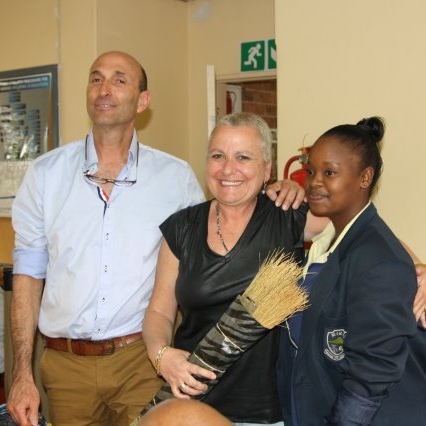
SA

Morris Isaacson School – the legacy lives on
SUZANNE BELLING
Morris Isaacson had been an immigrant from Lithuania who arrived in South Africa in 1896. He became wealthy through trading and set up a fund for black students to complete their education to university level. He then funded the school – now a government secondary school – which was named after him.
When the school was opened, Morris Isaacson gave sufficient money to build 10 classrooms. It initially had 300 learners and was then called the Mohloding School.
In June 1976, the SA Police tried to arrest Enos Ngutshane at Naledi High School. He was the local leader of the South African Students’ Movement and had sent a letter to the government complaining about the imposition of Afrikaans as a language medium in the schools.
The police failed to arrest him; they were stoned and a car was set on fire by the learners. On June 16, learners congregated at Naledi School to walk to the Morris Isaacson School in Jabavu. They at first wanted to gather at Orlando Stadium, but the police arrived and schoolchildren were shot and killed – 23 on the first day of the Uprising. Thus, Morris Isaacson High School became indelibly etched into the collective psyche of South African history.
After Nelson Mandela was democratically elected president of South Africa in 1994, he visited the Morris Isaacson School to celebrate and pay tribute to the school’s role in the Soweto Uprising and the country’s transformation.
The visitors on Monday – Kevin Isaacson, his wife Dr Atara Isaacson, accompanied by close family friend, former Chief Justice of Swaziland Stanley Sapire – felt being at the school was “probably a way of closing a circle”, according to Kevin.
Born in South Africa, Kevin has not been back to the country for 50 years.
“What triggered the visit was that my father passed away last year and I didn’t know much about what happened back then.”
Impressed with the school’s infrastructure, teachers, the children, and the way they looked, he said this was very different from the schools in Israel.
“We were curious to see how the school fits into Africa. In South Africa, we see the wonderful scenery, the views – and then the reality in other parts.”
The best investment was good education, he remarked. His grandfather gave the [educational] cause “top priority”.
“He was very far thinking in those days.” Morris had used his personal wealth and a positive outlook “and it is satisfying to see this is still ongoing. This community wants to be successful and to make this a better place for the younger generation.”
Education was the key to solving many problems. It provided a better chance in any field.
“It is very warming for us to come here and see all the devotion and the challenges you are dealing with on a daily basis, to get a sense of achievement of things that have happened over the years.
Principal Steven Khanyile outlined the achievements of the school, “which is not currently the best in the community, but is moving towards it”.
The school excelled at most sports and was one of the best in debating.
Morris Isaacson High was endeavouring to establish relationships with different communities to take the school to greater heights.
Being a school in a township, however, had many challenges such as the scourge of drugs “which are ‘normal’ in almost all communities” and making sure that a learner, who is a product of Morris Isaacson, understands how important it is to turn away from drugs.
Discipline was another important issue. “We are trying our level best to show these learners how important it is to be disciplined, respectful and to take care of other people.”
Security was also a concern “to make sure that whoever is inside is safe… We are reaching a point where we have to turn our school into a jail.”
Khanyile was aiming to build a wall around the school – (“not a Donald Trump wall”, he quipped) in relation to what was happening outside.
On a positive note, Khanyile said that the school was furthering the legacy of Morris Isaacson and was ready to take issues to another level.




